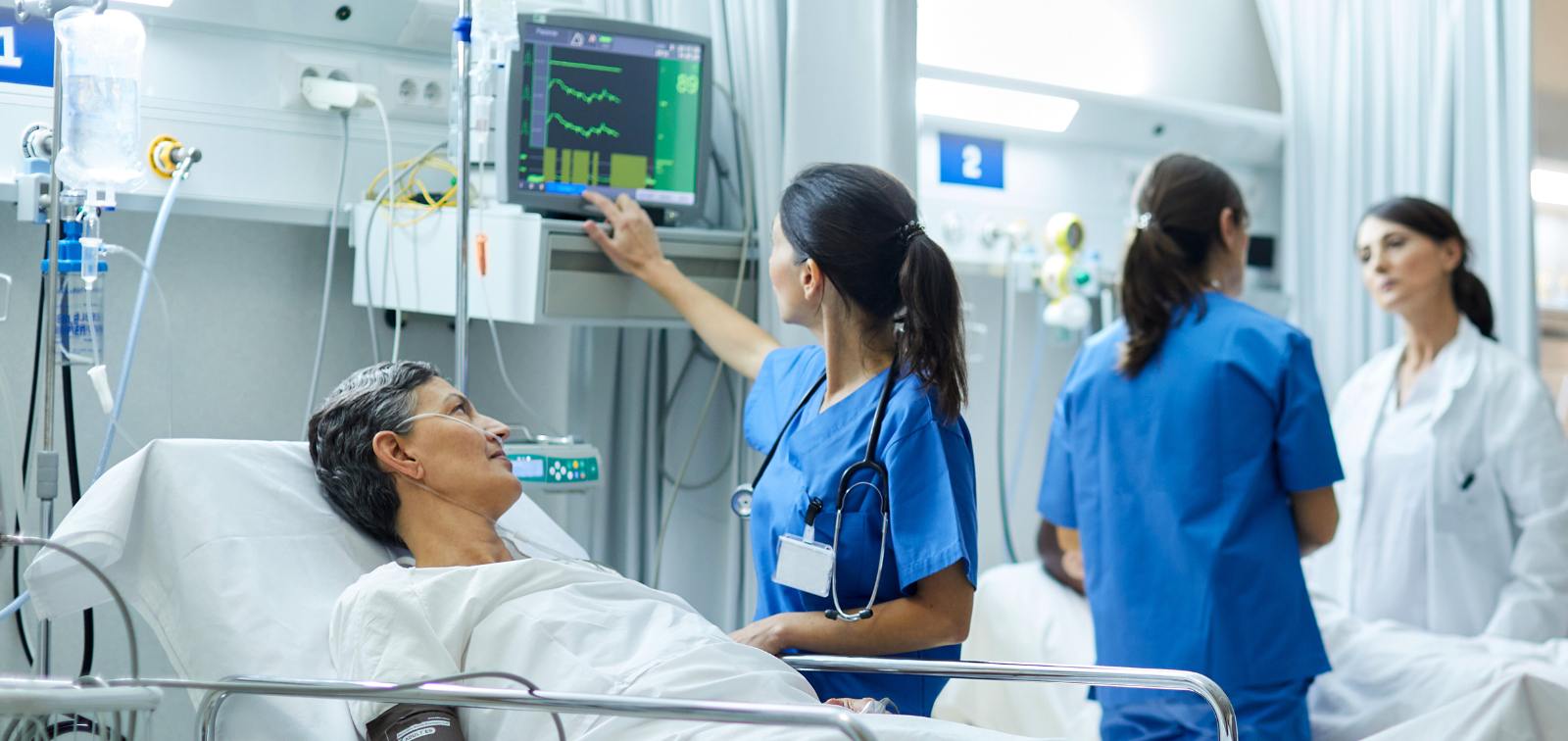Large Clinical Trial Calls into Question a Physician-Based Telemedicine Model in Critically Ill Patients
Brazil has conducted the first randomized clinical trial to determine whether telemedicine in intensive care units can improve clinical outcomes
09.10.2024
Implementing physician-based telemedicine in intensive care units (ICUs) does not reduce the length of stay of the patients, according to a large clinical trial in Brazil led by the Hospital Israelita Albert Einstein in São Paulo, in partnership with the Brazilian Ministry of Health (PROADI-SUS program) and the Barcelona Institute for Global Health (ISGlobal), a centre supported by ”la Caixa” Foundation. The results, presented in the Hot Topics section at the European Society of Intensive Care Medicine Congress in Barcelona and simultaneously published in JAMA, suggest that the best model for tele-ICU delivery has yet to be defined.
Caring for critically ill patients often requires a team of specialists, including intensive care physicians. However, there’s a global shortage of these specialists, particularly outside big cities. One proposed solution is telemedicine, where doctors remotely guide care in intensive care units (tele-ICUs). “Despite the promise of telemedicine and its growing use, no large study had tested if this approach can truly improve patient outcomes in ICUs,” says ISGlobal researcher Otavio Ranzani.
A trial involving 30 ICUs in Brazil
In a new study called TELESCOPE, funded by the Brazilian Ministry of Health, the authors aimed to find out if telemedicine could improve the ICU efficiency and reduce the length of stay for ICU patients. The study involved 30 ICUs from public hospitals across Brazil. Half of the ICUs followed their usual care routines, while the other half received, in addition to the usual care, daily telemedicine rounds which consisted in meetings between the experienced intensivist in remote and the local team to discuss possible diagnoses, treatment plans and problems. The specialist also provided the medical team with updated treatment guidelines and held monthly virtual sessions to review ICU quality indicators. Over 17,000 critically ill patients were involved in the trial, which ran from June 2019 to July 2021.
The main question was whether a physician-based telemedicine model could shorten the time patients spent in the ICU. The short answer is no. The average ICU stay was about the same in both the telemedicine and usual care groups—around 8 days. Other patient outcomes, such as infection rates and in-hospital deaths, also showed no significant differences.
Several reasons can explain why telemedicine didn’t make a bigger impact. “The issue seems to be more complex than to ‘simply’ place a remote intensivist physician to connect daily with remote ICU teams. For instance, issues regarding multidisciplinary care (provided by intensivist nurses, respiratory/motor therapists, and clinical pharmacists) and management (care process, flow, communication etc.) may be missed. In addition, it could be that some ICUs in the study did not have enough resources or staff to fully benefit from the telemedicine model,” says Adriano Pereira from the Hospital Israelita Albert Einstein and co-lead author of the study. In addition, the COVID-19 pandemic, which hit during the study, may also have strained ICU resources and affected the results, although it is not clear why this would be different between the two groups.
The authors conclude that, while telemedicine didn’t reduce ICU stays in this study, it doesn’t mean that other models of telemedicine won’t work in other settings. Finding the best way to use this technology in critical care remains a challenge.
“Our study shows that telemedicine in critical care needs good scientific evidence to, evaluate different models, optimise their delivery, and identify which settings will benefit the most,” say Ranzani and Pereira.
Reference
Pereira AJ, Noritomi DT, dos Santos MC et al. Effect of Tele-ICU on Clinical Outcomes of Critically Ill Patients. The TELESCOPE Randomized Clinical Trial. JAMA. Oct. 2024. Doi: 10.1001/jama.2024.20651



